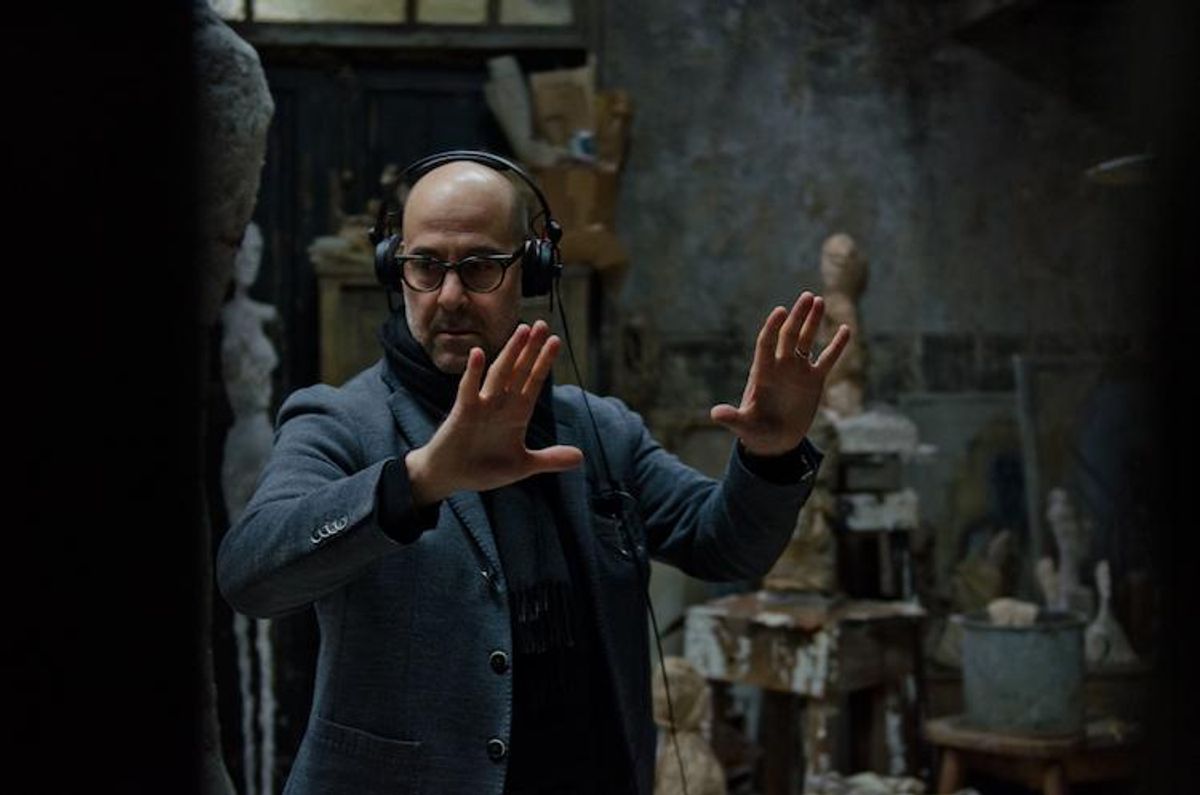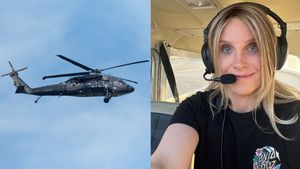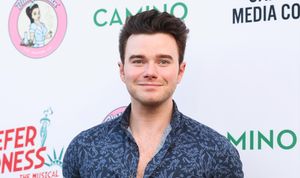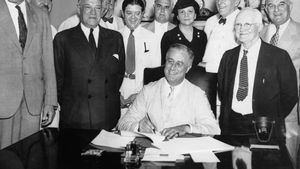Stanley Tucci speaks as if he has a permanent twinkle in his eye. In film after film, the actor's soft-spoken presence has become a cinematic gift that's culminated in this year's now-iconic SNL short "Tucci Gang" celebrating his underrated and long-running career.
The scene-stealing star isn't on the phone to talk about the latest character he's playing. Tucci's latest triumph is more monumental than playing the coolest dad of all time in Easy A or the eccentric Caesar Flickerman in The Hunger Games. Instead, the cause for celebration is his return to the director's chair a decade after his 2007 feature Blind Date -- and this time, his role is entirely behind the scenes.
Related | Armie Hammer Plays Gay (Again) in Final Portrait Trailer
It's within the story of Swiss painter and sculptor Alberto Giacometti that Tucci found the spark that led him to write and direct the quiet biopic Final Portrait. With a cast that includes award-worthy turns by Geoffrey Rush as the eccentric artist and Armie Hammer as gay writer James Lord who sits for a portrait, the film is very much the antithesis of the reputation that Tucci has garnered through his career.
Armed with a flurry of grunts and a handful of paintbrushes, some of the most arresting visual drama in the film happens in closeup shots of Giacometti as he puts his paintbrush to the canvas over and over again. "It's a very intimate piece. It's not about broad strokes -- no pun intended," Tucci reflects of his directorial choice. It's an intimacy that is at times both beautiful and suffocating throughout the film (depending on Giacometti's mood that particular day). Across a rapturous 90 minutes, Tucci's directorial gaze offers an unfiltered view of the controversial artist that's as raw as the clay that coats his hands as he attempts to make sense of the sculptures littering his studio.
As the film celebrates its release on DVD and digital this week, we caught up with Stanley Tucci for eight minutes to talk about seeking the truth in art, the subtle pull of James Lord's off-screen lover, and the one artist he'd love to sit for a portrait with.
OUT: What drew you to the story of Alberto Giacometti in particular?
Stanley Tucci: I always interested in Giacometti's work and I grew up with a father who was an artist and art teacher, so I ended up going to museums a lot when I was a teenager. I was always around it and I've always loved Giacometti's work from the time I was young. The more I began to read about him and read what he wrote, [I realized] he was probably one of the most articulate artists to talk about the creative process. To me, he was constantly seeking the truth in his art until the day he died and that's something we all aspire to.
Giacometti is a bit of an asshole in the film. Did you have any hesitation about showing that very real side of him?
He's incredibly selfish to his wife and then incredibly generous to other people. He had this very substantial and fragile ego, but a very secure one at the same time. It was interesting, and I had no trepidation about showing that in the film because that's who he was.
With the portrayal of author James Lord by Armie Hammer, his relationship with his boyfriend takes place entirely off camera through phone calls. Did you ever consider incorporating that more into the story?
Not really because James was never very upfront about his relationships. I took what was in the book and expanded it slightly but there really wasn't a lot there. It would seem to distract from the essence of the thing. In a way, it was stronger for us to have him feel that pull without getting the details.
Related | Strike a Pose: 5 Unforgettable Movie Muses
Do you have any interest in making a film about the life of James Lord?
No, I don't think so. (Laughs) He wasn't really very prolific and didn't really write that much, but what he wrote was really beautiful. His insight into artists was quite profound.
This is the first film you've written and directed in ten years. Do you have a project in mind you'd like to work on next?
There is a book I've adapted called City of Women that I hope I'll someday be able to bring to the screen. It takes place in Berlin near the very end of the war.
In terms of your acting career, you've garnered such a reputation and were the subject of the "Tucci Gang" SNL skit earlier this year. How did it feel to go behind the camera and focus on writing and directing this film?
Oh, I loved it. It's been ten years since I directed a film and [Final Portrait] was the fifth film I had directed. It was really wonderfully satisfying and I had missed doing it.

Armie Hammer and Geoffrey Rush in Final Portrait. Photo: Courtesy of Sony Pictures Classics.
I wanted to talk about the almost minute directing style you use in the film. There are so many beautiful scenes of his paintbrushes painting on the canvas. How'd you decide on this particular style?
It's a very intimate piece. It's not about broad strokes -- no pun intended. That repetition in his painting forces you, as a filmmaker, to explore deeper and deeper with each detail. The more detailed it is, I think in a strange way the more universal it becomes.
Have you sat for a portrait before?
Yeah, I have a few times.
How was it compared to the experience of James Lord in the film sitting for Giacometti?
I think it was a hell of a lot easier than James Lord's experience. (Laughs) I had spoken to three people who had posed for Giacometti and they all described exactly what James Lord described in his book.
Ok, final question. What famous artist, living or dead, would you want to draw you?
Oh gosh, it's so hard to say. I'd probably still go with Giacometti.


























































































